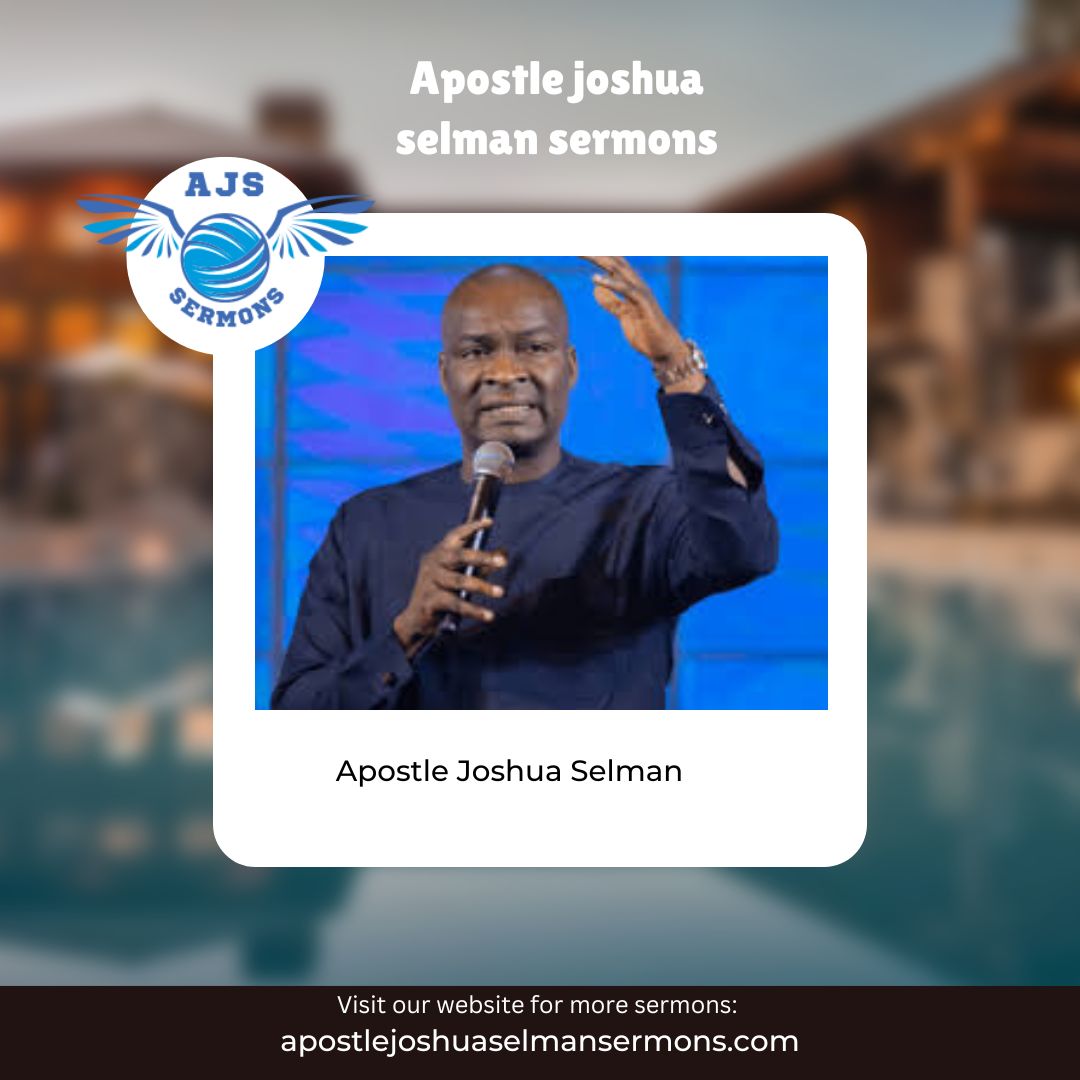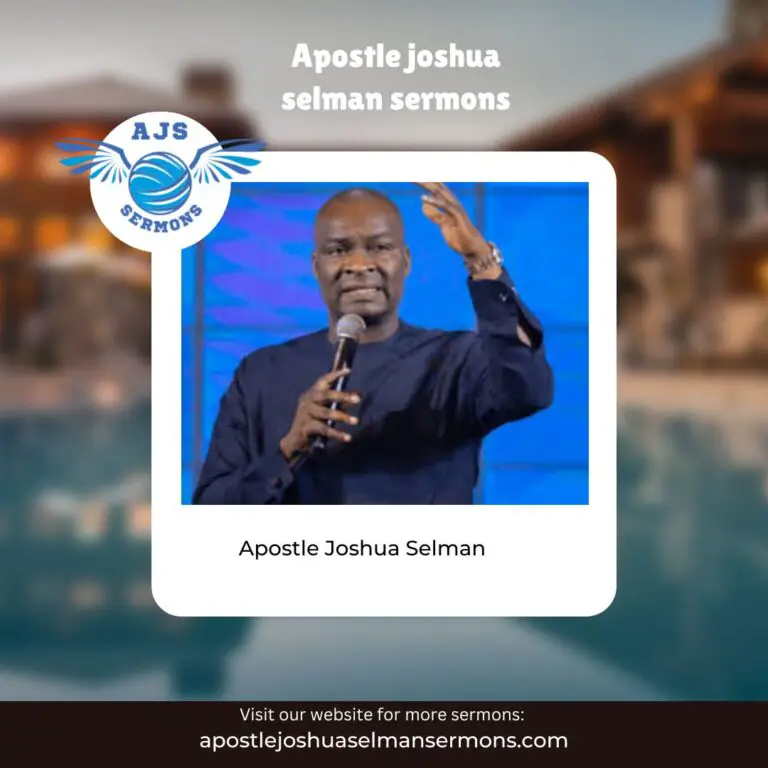In the powerful teaching titled “Complete Deliverance (Part One),” Apostle Joshua Selman of Koinonia Abuja dives deep into the subject of spiritual deliverance, highlighting the importance of understanding the biblical foundation of deliverance and the steps believers must take to walk in total freedom. This teaching serves as the first part of a multi-session series, where Apostle Selman methodically unpacks the subject of deliverance, focusing on areas where believers often face spiritual oppression, bondage, and limitations.
Introduction to Deliverance
Apostle Selman begins by explaining that deliverance is a vital part of the believer’s experience in Christ. While salvation grants a believer eternal life and reconciliation with God, deliverance ensures that the believer walks in total freedom from the powers of darkness. Many people, even after receiving Christ, still find themselves battling certain forms of spiritual oppression, which can manifest in areas such as sickness, poverty, depression, addictions, and generational patterns.
He draws from Hosea 4:6, “My people are destroyed for lack of knowledge,” emphasizing that ignorance is one of the main reasons why many believers continue to live in bondage. Deliverance is not only about casting out demons; it’s about breaking free from spiritual limitations and oppressive systems that hinder the believer from experiencing the fullness of God’s promises.
What Is Deliverance?
Apostle Selman defines deliverance as a process of setting someone free from the influence of demonic powers and oppressive systems of darkness. This can take place on different levels:
- Individual Deliverance: Breaking personal bondages like sin, addictions, emotional trauma, and mental strongholds.
- Family or Generational Deliverance: Dealing with ancestral curses, generational patterns, and collective captivity that affect family bloodlines.
- Territorial Deliverance: Addressing demonic influences tied to specific geographic locations or regions where spiritual forces limit the advancement of God’s purposes.
Using Colossians 1:13—“Who hath delivered us from the power of darkness, and hath translated us into the kingdom of his dear Son”—Apostle Selman highlights that deliverance is God’s will for every believer. Once we are born again, we are legally free, but practical freedom is only experienced when we apply spiritual truths and engage in warfare where necessary.
The Foundations of Deliverance
Apostle Selman outlines three foundational truths that every believer must understand to walk in complete deliverance:
- Understanding the Finished Work of Christ: He explains that deliverance is rooted in the finished work of Christ on the cross. Through His death, burial, and resurrection, Jesus defeated Satan, sin, and the power of darkness. Deliverance is not about trying to win a battle that Christ has already won. Instead, it’s about enforcing the victory of Christ over the powers of darkness that seek to oppress and limit believers. He references Colossians 2:15, where it states that Christ disarmed principalities and powers, making an open show of them.
- Spiritual Authority of the Believer: Believers must understand their authority in Christ. Deliverance involves exercising this authority over demonic forces. Apostle Selman points to Luke 10:19, where Jesus says, “Behold, I give you power to tread on serpents and scorpions, and over all the power of the enemy, and nothing shall by any means hurt you.” He emphasizes that authority is useless without knowledge and application. A believer must know and actively engage the authority given to them in the name of Jesus.
- The Role of the Mind in Deliverance: Deliverance is not just a spiritual experience; it involves the renewal of the mind. Apostle Selman emphasizes that many believers are free spiritually but remain in bondage mentally because their thought patterns are not aligned with the Word of God. Citing Romans 12:2—”Be ye transformed by the renewing of your mind”—he teaches that the transformation of the mind is crucial for sustaining deliverance. It is not enough to experience spiritual freedom if the mind is still conditioned by lies, fear, or worldly systems.
Areas Requiring Deliverance
Apostle Selman moves on to highlight specific areas in the lives of believers that often require deliverance:
- Deliverance from Sin and Addiction: Many believers struggle with recurring sin patterns and addictions that hinder their spiritual growth. He explains that sin can open doors to demonic influence, which is why repentance and deliverance are critical for breaking these cycles.
- Deliverance from Ancestral Curses and Covenants: Apostle Selman discusses how generational curses and covenants—agreements made by ancestors with demonic forces—can negatively impact descendants. He explains that although believers are under the new covenant of Christ, they must consciously break these old covenants through prayer and prophetic decrees. Using examples from Scripture, such as the story of Abraham and his descendants, he illustrates how ancestral patterns can follow bloodlines unless they are confronted through deliverance.
- Deliverance from Demonic Oppression: He also addresses cases where believers are oppressed by demons through dreams, sicknesses, financial setbacks, and various forms of oppression. Apostle Selman teaches that demonic oppression is often subtle but can have long-term consequences if not dealt with. He emphasizes the need for believers to be spiritually vigilant and sensitive to the Holy Spirit’s promptings.
- Deliverance from Fear, Depression, and Emotional Strongholds: Apostle Selman recognizes the emotional and mental bondage that can plague believers. Fear, depression, anxiety, and trauma are areas where deliverance is often needed. He explains that emotional wounds can create access points for demonic oppression, and believers need healing through God’s Word, prayer, and sometimes professional counseling in addition to spiritual deliverance.
Steps to Complete Deliverance
In the final part of this session, Apostle Selman offers practical steps for experiencing complete deliverance:
- Acknowledge the Problem: The first step in deliverance is acknowledging the area of bondage. Denial is a tactic the enemy uses to keep people bound. Confession and transparency before God open the door to freedom.
- Repentance and Renunciation: Repentance involves turning away from sin, while renunciation means verbally breaking ties with any covenants or agreements made with darkness, whether knowingly or unknowingly.
- Engage in Warfare Prayers: Deliverance often requires warfare prayers, where believers use the authority of Christ to cast out demonic spirits and break spiritual chains.
- Immerse in the Word of God: Apostle Selman emphasizes the importance of saturating one’s life with the Word of God. The truth of Scripture dismantles strongholds and renews the mind, making it difficult for the enemy to re-establish his hold.
- Fellowship and Accountability: Deliverance is sustained through continuous fellowship with other believers, discipleship, and being accountable to spiritual leaders.
Conclusion
Apostle Joshua Selman ends “Complete Deliverance (Part One)” by stressing the importance of understanding deliverance as a process rather than a one-time event. While the power of God can bring instant freedom, sustaining that freedom requires a lifestyle of spiritual discipline, prayer, and adherence to God’s Word. Deliverance is not just about freedom from demonic forces; it’s about living in the fullness of God’s will and purpose.

